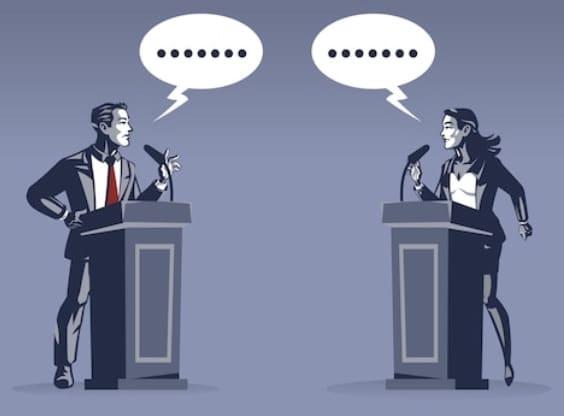
In the absence of hard data dealing with this question, we look through the lens of history to gain some insight into who has prevailed in politics. Is those with wealth or those with intelligence?
Over two thousand years ago, Socrates, one of the most intelligent people in the ancient world, was in Athens pioneering the dialectic–a method of posing questions to arrive at truth by challenging assumptions and destroying beliefs that could not withstand logical scrutiny. Some prominent and wealthy Athenians who were threatened by Socrates’ mode of questioning charged him with corrupting the minds of the youth. At his trial in 399 BC, Socrates was found guilty and was sentenced to death. Socrates had an intelligence that was magnitudes higher than those who convicted him of corrupting the youth, but they were in a position of power and he was not. His intelligence was no match for the power of the moneyed and powerful elite.
About two thousand years later, many of the most brilliant Jewish scientists, including Albert Einstein, Max Born, Hans Bethe and a host of others fled Nazi Germany under the threat of extermination. Hitler and the members of the Third Reich had acquired huge public support and, after the invasion of Austria, large reserves of gold that enabled them to finance World War II. The highest intellects were powerless against this persecution and were forced to emigrate.
Today, our most brilliant people work in universities, in sophisticated businesses or as entrepreneurs. Many of those of lesser intellectual talent gravitate toward government jobs and politics. Though most of them may be above average in intelligence, they are sufficiently close to the average to understand how to communicate with the general public. The personal wealth of those seeking political office is less important than the resources of their financial backers. Behind the scenes, those with money contribute to their campaigns. These donations often come with expectations that are often fulfilled when the candidate of their choice comes into power. It is the financial backing that the candidate can secure that will propel their marketing machine and their candidacy more than their IQ.
By backing a candidate with some charisma and public appeal, those with money can exert a significant amount of influence on the political landscape. Of course, those who have accumulated great wealth usually have higher than average intelligence, so in this way higher intelligence does exert some influence in politics, but it’s money and not the intellect that packs the punch.
Studies of the IQ’s of U.S. Presidents indicate that most of them have or had estimated IQ’s that were above 120. Some had an IQ in the gifted range. However, their ascendency to the presidency, especially in the recent centuries was less a result of their intelligence and more a result of the moneyed interests that funded and supported their campaigns. Presidents John F. Kennedy and Richard Nixon were both highly intelligent people, but in the 1960 election it was the money and influence of Joe Kennedy and his backers that secured the support of various unions that tilted the votes in Kennedy’s favor.
Of course, high intelligence is usually an asset in any political candidate, but extreme giftedness can be a detriment. As a military leader once advised, “Don’t get too far ahead of the troops, or you will be mistaken for the enemy.”
